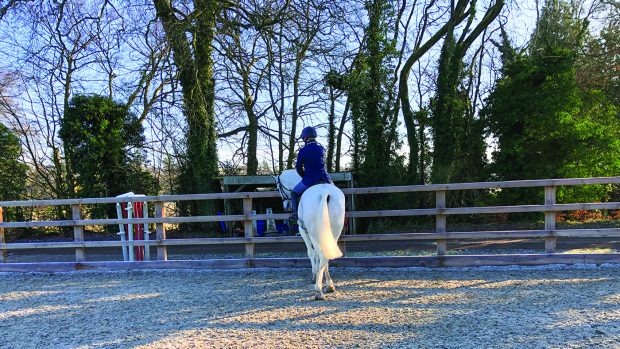Navigating the often bewildering world of bits can be daunting. Andrea Oakes finds out whether bitting clinics could be the answer
Whether it’s an art or a science is debatable, but there’s no doubt that bitting a horse has become infinitely more complex.
From basic brakes to a more sophisticated means of fine-tuning communication, there’s seemingly a bit to suit every horse and every discipline. Yet finding the right one amid the mind-boggling range of options on offer can be a daunting and difficult task.
What is a bitting clinic?
A bitting clinic is a try-before-you-buy solution designed to bring expertise within easy reach. Guesswork is taken out of the equation as horses and their riders meet with a bitting adviser for a hands-on session.
“We find that bitting clinics are vital in getting our clients’ horses to go the best they can,” explains Lynn Chapman of Train Equus, who organises half a dozen of these get-togethers a year at her Hampshire yard. “Rather than going to a tack shop to say your horse is pulling, or won’t turn, you have an expert in front of you to see what’s going on.”
How do bitting clinics work?
Lynn uses full-time bitting clinician Hilary Vernon, with clinics following a tried-and-trusted format.
“We start with a general talk from Hilary about bitting, followed by a cup of tea and an open question session,” says Lynn.
“People then ride their own horses individually for Hilary in their current set-up. They can each spend time with her to talk through any issues and try new bits in an informal and relaxed environment.”
Hilary runs her own range, Informed Designs, but has also had design input into brands including Happy Mouth. She travels to a number of venues, taking a large variety of bits for customers to try.
“These bitting days have evolved over the years,” she says. “It’s really hard to get people to tell you about their horses, so the free talk is aimed at making them feel comfortable and confident and to encourage them to start thinking about the sort of issues we may encounter when we consider re-bitting.
“I cover various areas of bitting, such as conformation of the horse’s head, jaw and mouth, and discuss the effect of different designs,” she adds.
“I’ll explain why sharper bits are not so good, how a double works and why a snaffle is limited. We’ll then look at each of their horses in turn.”
Gail Johnson of Horse Bit Hire asks her clients to complete a questionnaire, so that she can glean information about their horses before travelling. She will then see the customer ride and suggest an alternative bit to try, if appropriate.
“Not everyone needs to change their horse’s bit, but many do,” she says. “This could be due to sizing issues, or perhaps because the horse is doing a different discipline.”
While Gail will travel to most UK venues, she also offers a virtual bitting clinic for far-flung customers.
“I’ll watch them ride in their current bit through a Skype link,” she explains. “If I feel that change is recommended, I’ll send a bit by post and watch them work the horse again with it in place. It’s not ideal, as I can’t put my hands on the horse’s head, for example, but it’s the next best thing if I can’t meet with them.”
What should you expect to get out of a bitting clinic?
Hilary is keen to point out that a new bit is not a miracle cure.
“I impress upon people that a horse’s teeth, back, saddle, feeding and training all impact upon the rider’s ability to control him,” she explains.
“The bit is probably the last thing to think about. People shouldn’t believe that a new bit will help them go from prelim to elementary in three weeks.”
Dressage rider and trainer Dan Greenwood can see the value of a bitting clinic.
“There is a risk of overcomplicating things, but if you feel that a horse is particularly difficult to bit, or you’re struggling, it could be useful,” he says. “I find with bits that a new one is either instantly better or not at all, so a clinic makes a lot of sense.
“At the end of the day, though, it’s the pair of hands on the end of the reins that really matters.”
Continued below…
Liked this? You may also enjoy reading these articles…
At this year’s Horse of the Year Show
Are you looking for a new, stylish snaffle

Should young children be riding in Wilkie and beval bits?

8 superb snaffle bits with a lozenge
How should you choose your clinic and expert?
A successful clinic depends very much on the skills of the adviser — and Gail points out that anyone can set themselves up as a so-called bitting expert.
“If you’re choosing an adviser, check how long they’ve been doing it,” she says. “Visit their website and talk to them to get a feel for them. Ideally, they should have independent experience so they’re not tied to one brand.”
The full version of this article was first published in the 25 May 2017 issue of Horse & Hound magazine




